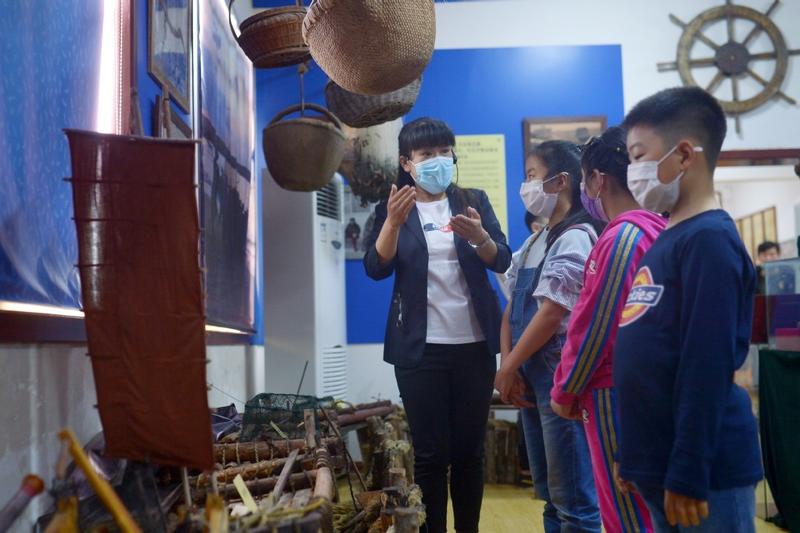 A rural memory museum in Xiahe county, Gansu province, was opened in July. (YAN ZHIHONG / FOR CHINA DAILY)
A rural memory museum in Xiahe county, Gansu province, was opened in July. (YAN ZHIHONG / FOR CHINA DAILY)
LANZHOU-In an obscure museum in Huachuan village, old household items and furniture collected from local farmers are testimonies to the tremendous changes wrought by the national anti-poverty drive.
Kerosene lamps and water containers made from bark were once common objects in the village in Gansu province.
Now they are displayed like ancient relics in the three-room "Rural Memory Museum".
One family's prized possessions included five pottery bowls that are on display in a neat row.
"In the past, only the better off of the impoverished families in the village could afford them," said Wang Ting, a township official stationed at the village and a guide at the three-room museum.
Pottery jars of various shapes and sizes are the most common items on display, representing an era when families needed to store water in preparation for dry spells.
China has set the goal of eradicating absolute poverty by the end of this year
Another photo showed villagers gathering around a newly installed outside water tap in 2014. "It was the first time tap water reached the village, and villagers wrapped the faucet with plastic bags to protect the precious water source from freezing in the winter," Wang said.
China has set the goal of eradicating absolute poverty by the end of this year.
As destitution fades across China, villages like Huachuan have set up museums to document poverty, in order to honor the historic campaign and to preserve local cultures and identities.
In Shandong province, more than 210 village memory museums have been set up since 2018 with government funds.
One museum in Caoxian county collected over 100 wooden farming tools that have been made redundant by machinery.
 Children visit a fishing port memory museum in Qingdao, Shandong province. (WANG HAIBIN / FOR CHINA DAILY)
Children visit a fishing port memory museum in Qingdao, Shandong province. (WANG HAIBIN / FOR CHINA DAILY)
Huachuan is one of the better-off villages in Tongwei county, Gansu, which is about to be removed from the national list of impoverished counties. The village lifted itself out of poverty in 2014 after developments in its animal husbandry and with strong government assistance.
ALSO READ: Former Jewish refugee donates 8,000 books to Shanghai museum
Last year, the village opened the museum to preserve its culture and keep physical reminders of its battle against poverty. The museum has 486 items, all donated by enthusiastic residents.
"Many villagers rummaged through their houses for old items, and some wealthy locals living in other cities mailed us old pictures and wired money to express support," Wang said.
"The opening ceremony of the museum was attended by many elderly villagers, who were excited to see their items being displayed as something of great value."
Xu Shangwen, 48, donated jars handed down by his parents, a couple of old stamps and old farming tools.
"These old items are useless junk in my house. I'm glad they found a place in the museum and became memories of the village," Xu said."I hope the museum can help young people understand how hard our lives once were, so they cherish today's good life."
Xu's family will be removed from the poverty list this year, thanks to the growth in local industries and government assistance.
Wang agrees that the museums can educate younger people, who have few memories of poverty due to the rapid advances in society.
READ MORE: Landmark exhibition to open at Palace Museum
"The enormous changes since China launched the anti-poverty campaign is worth recording, so are the lives and struggles of many villagers," she said.


